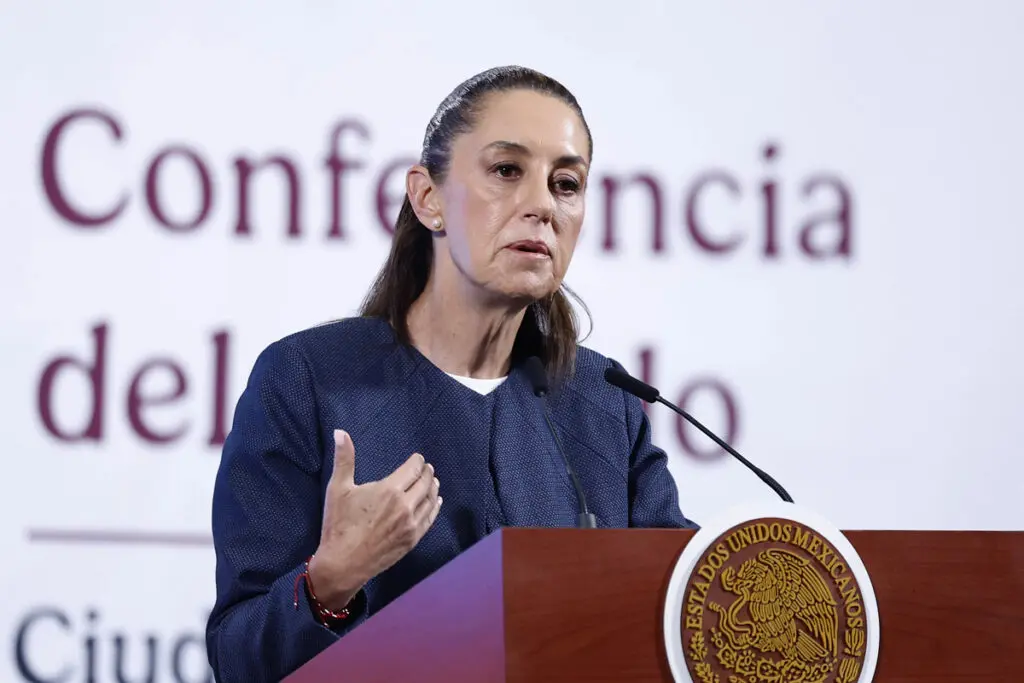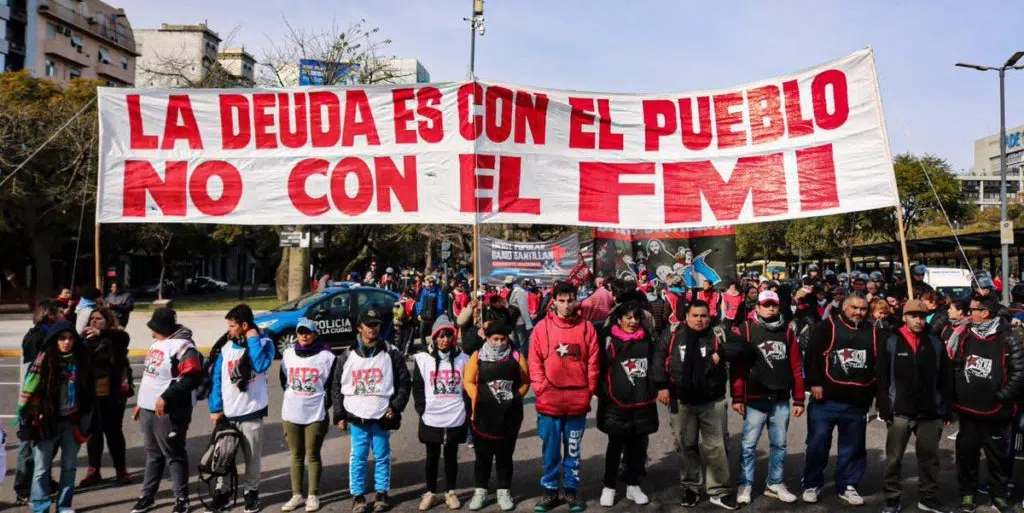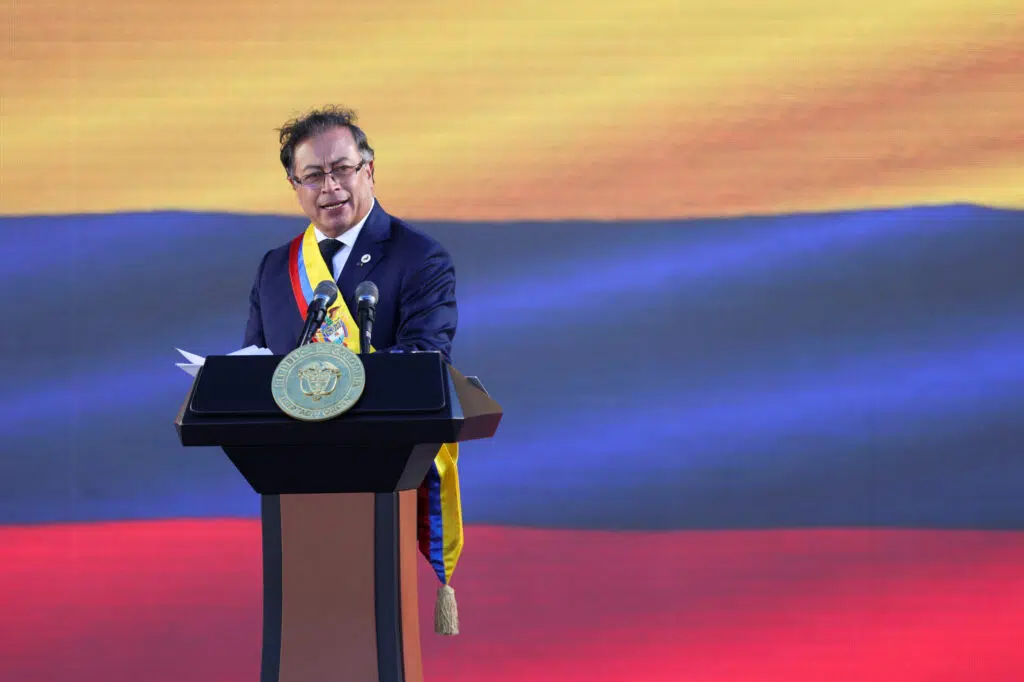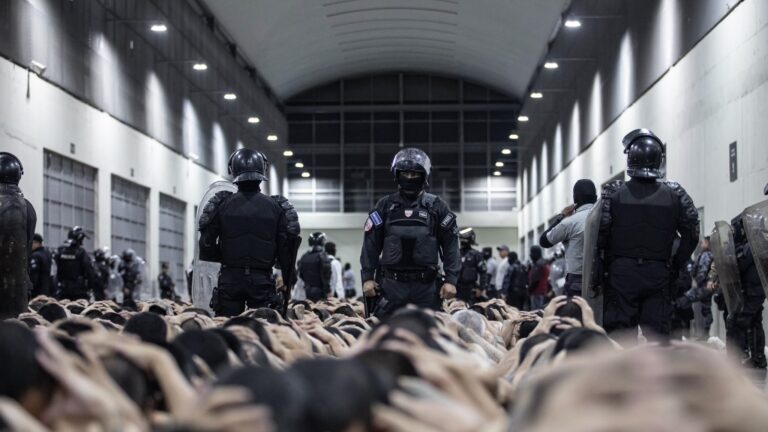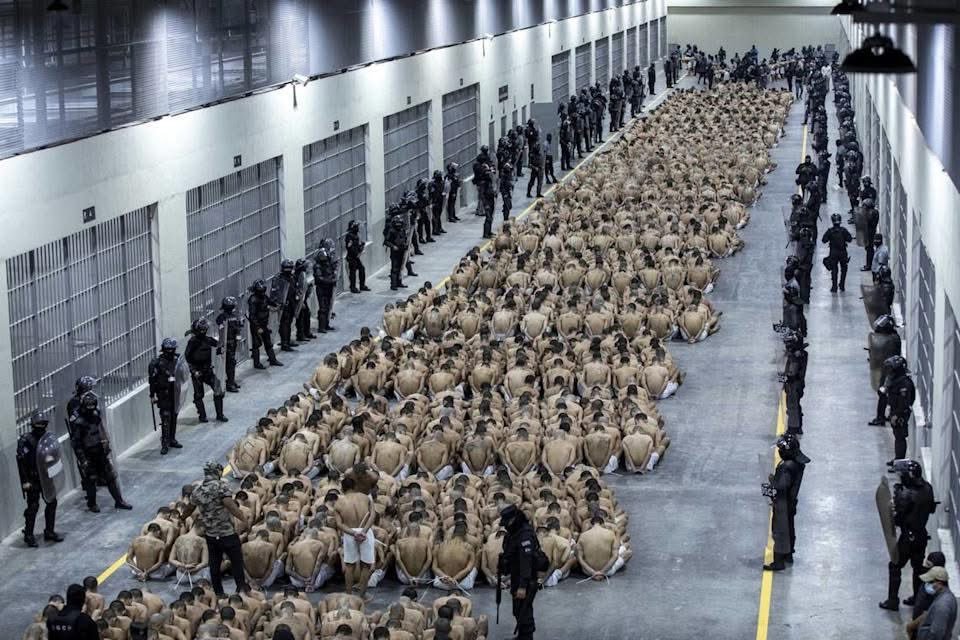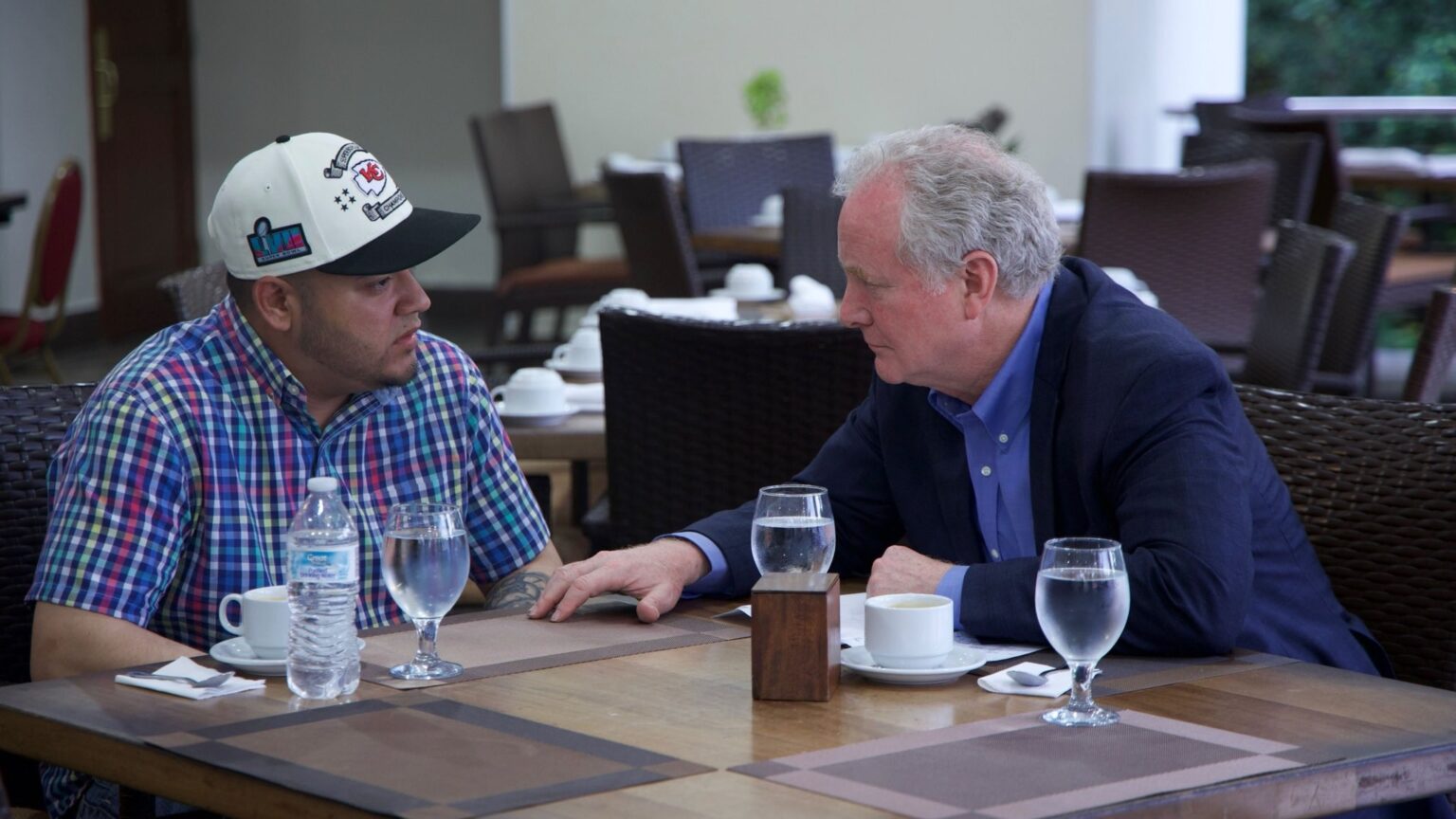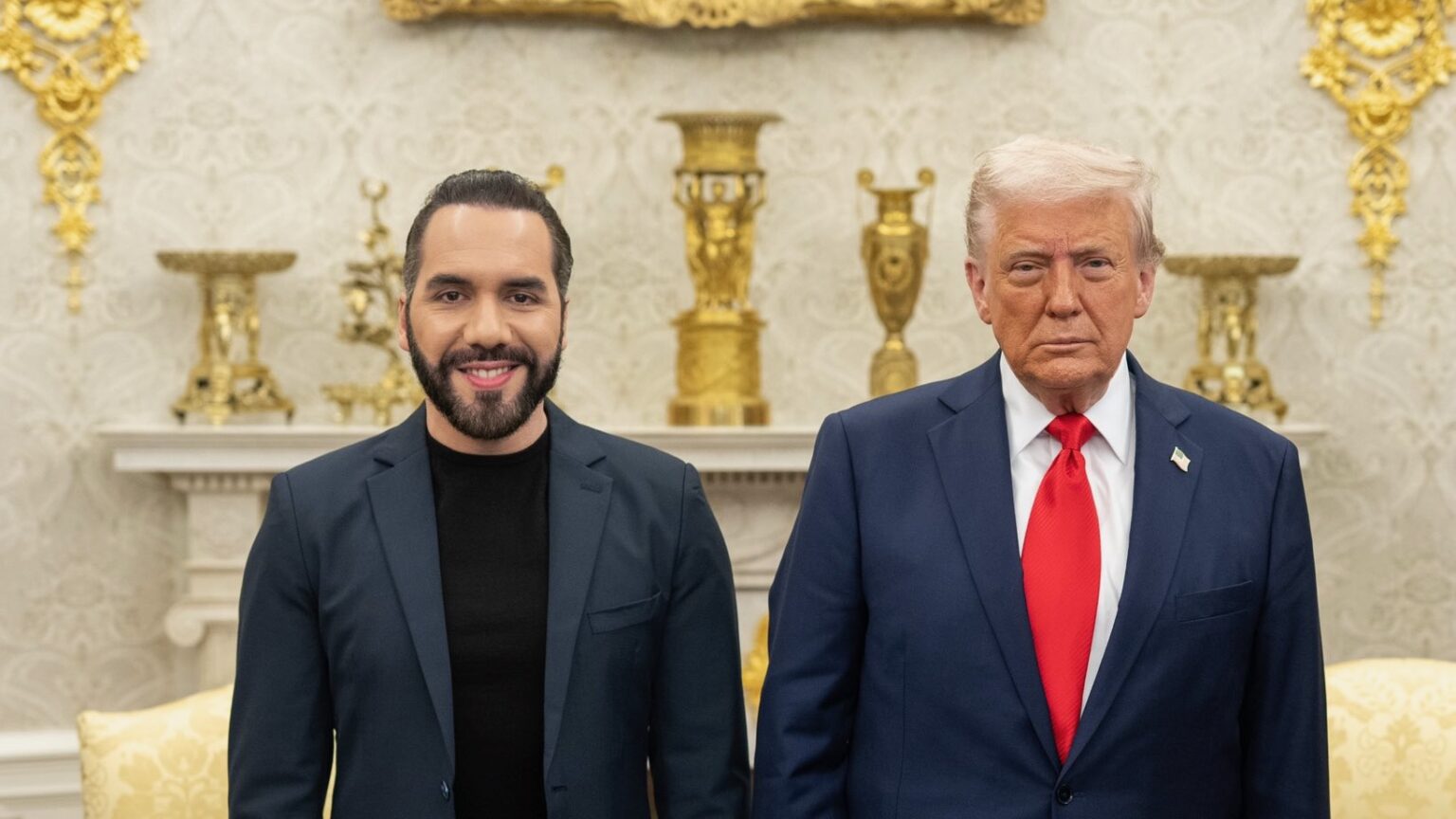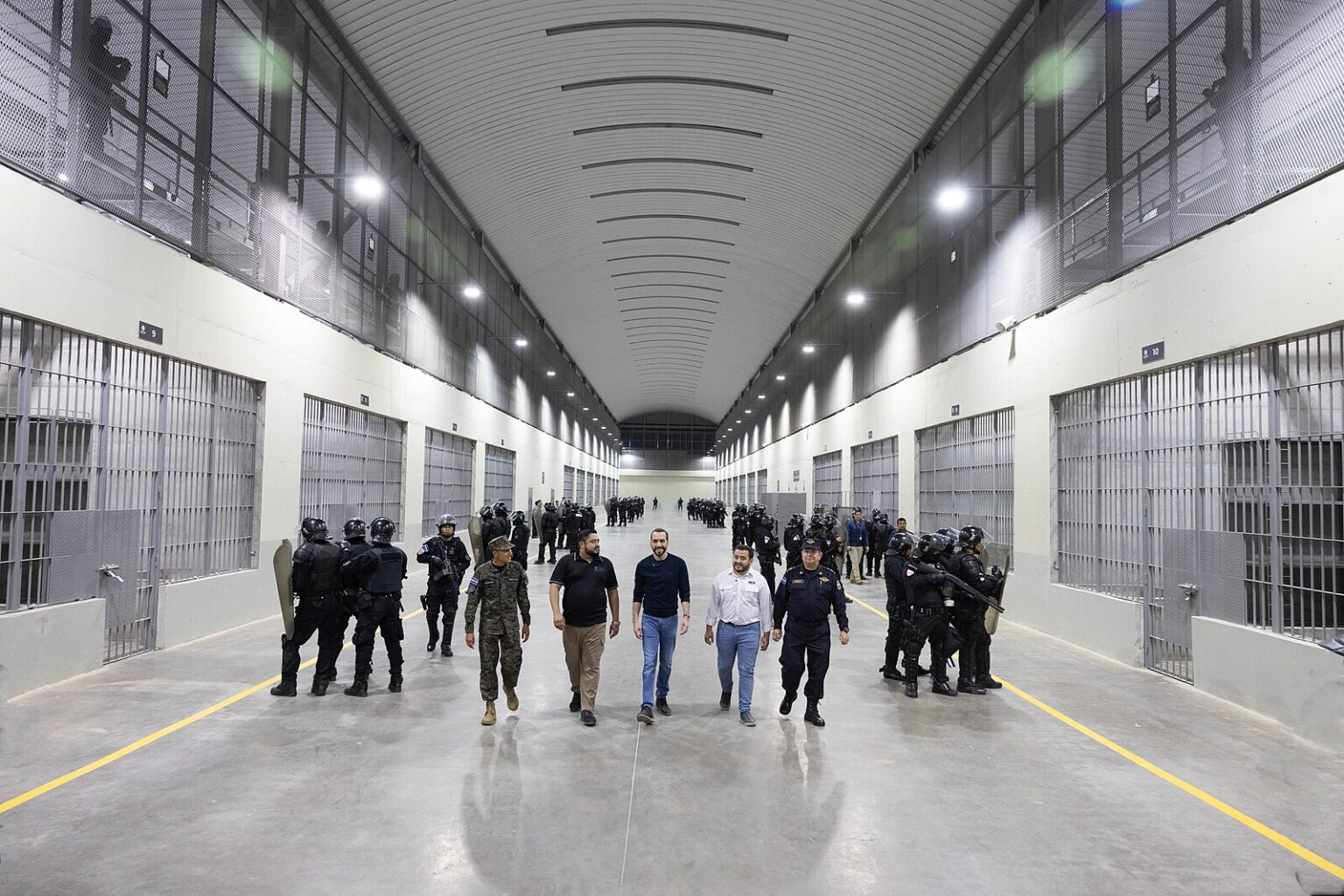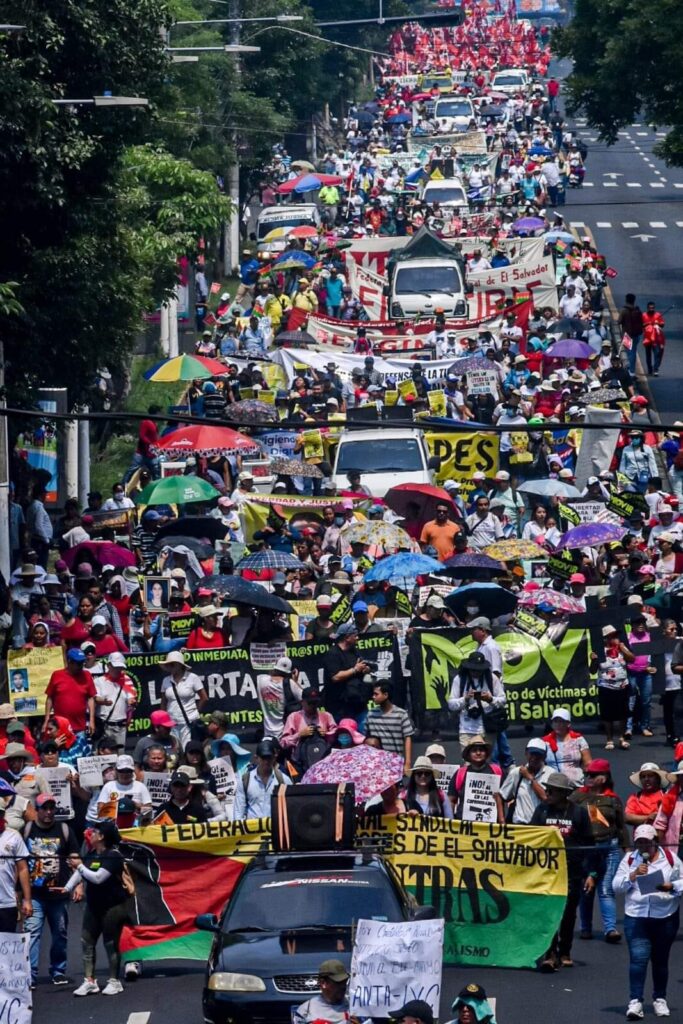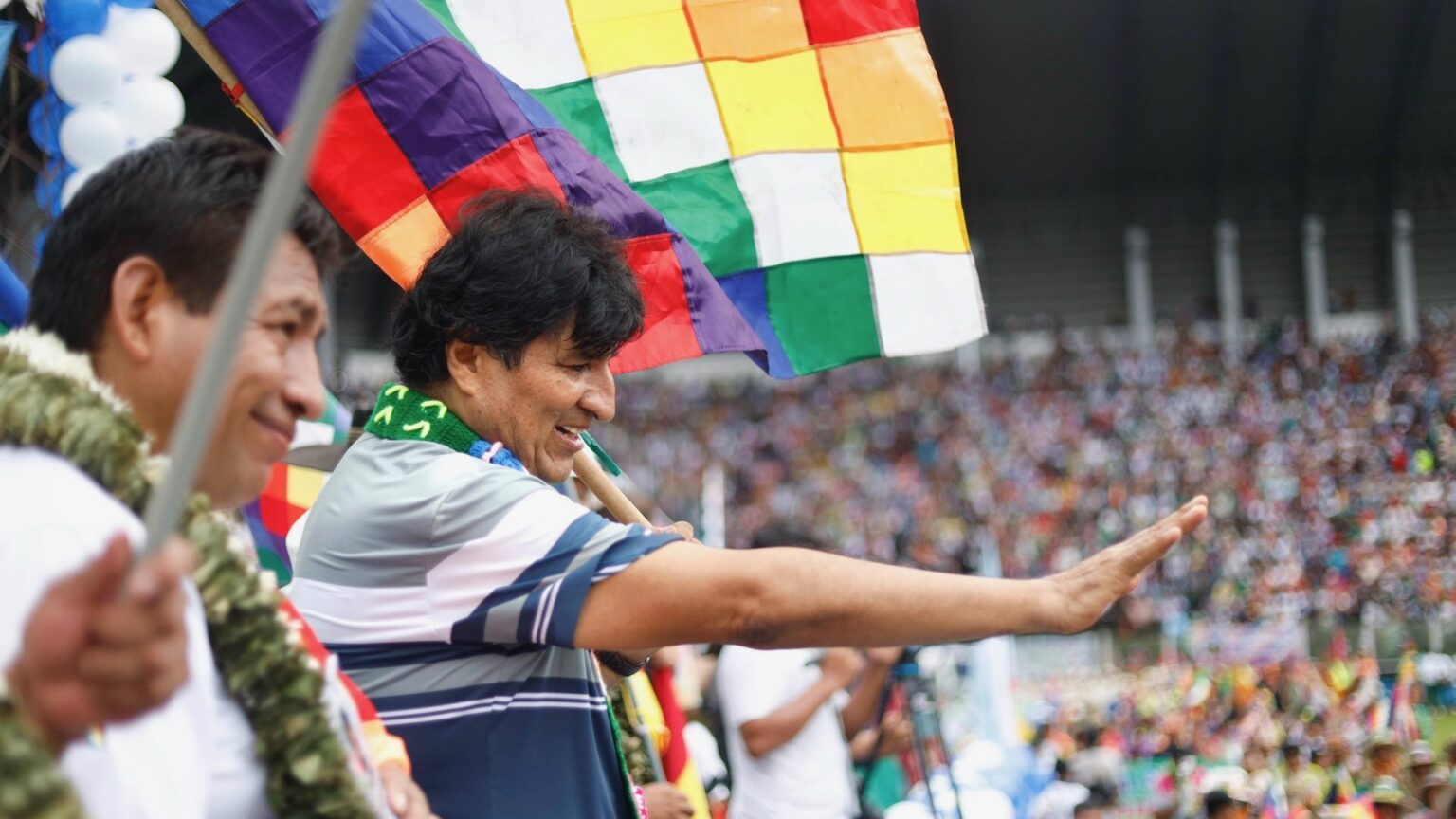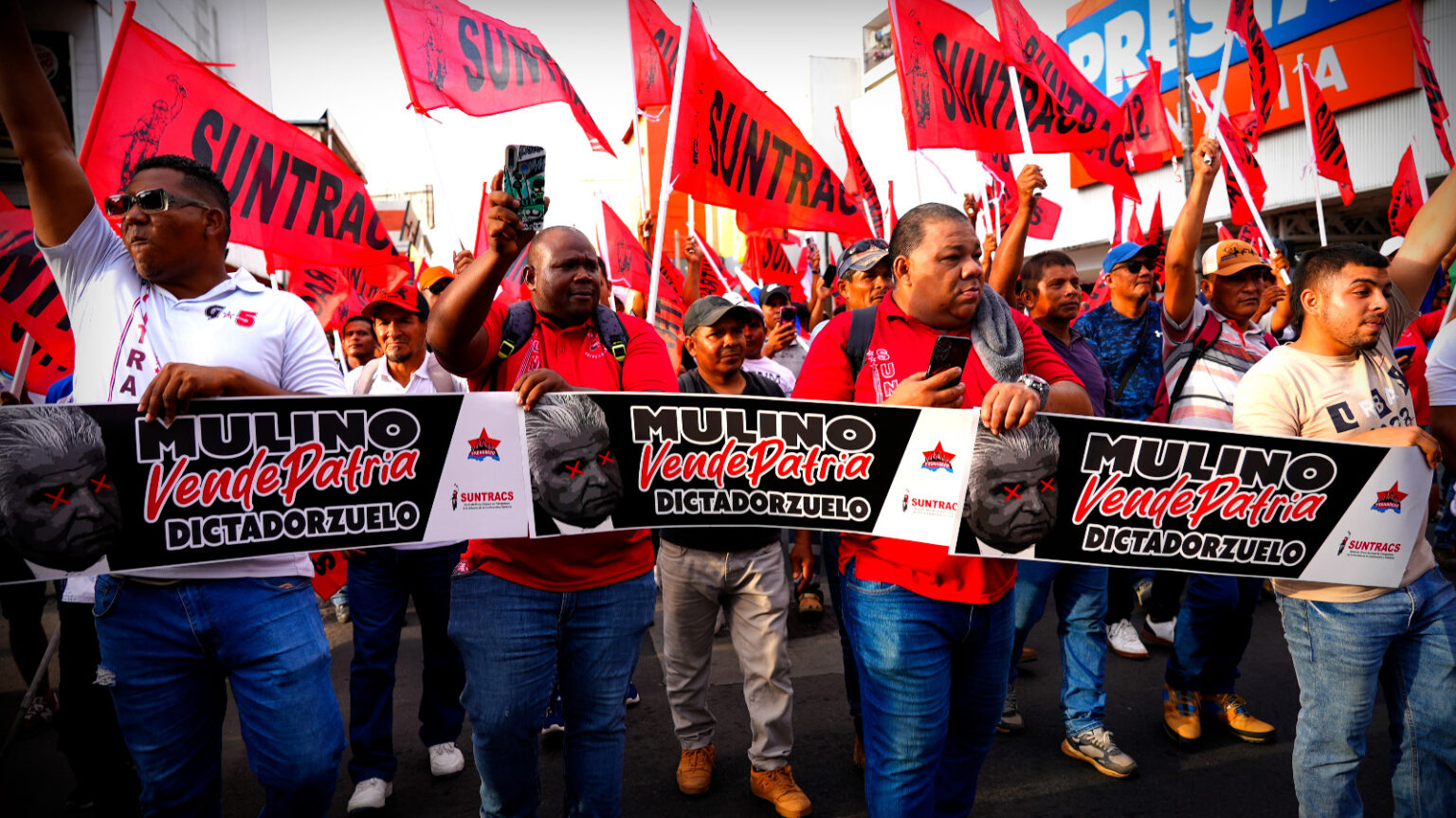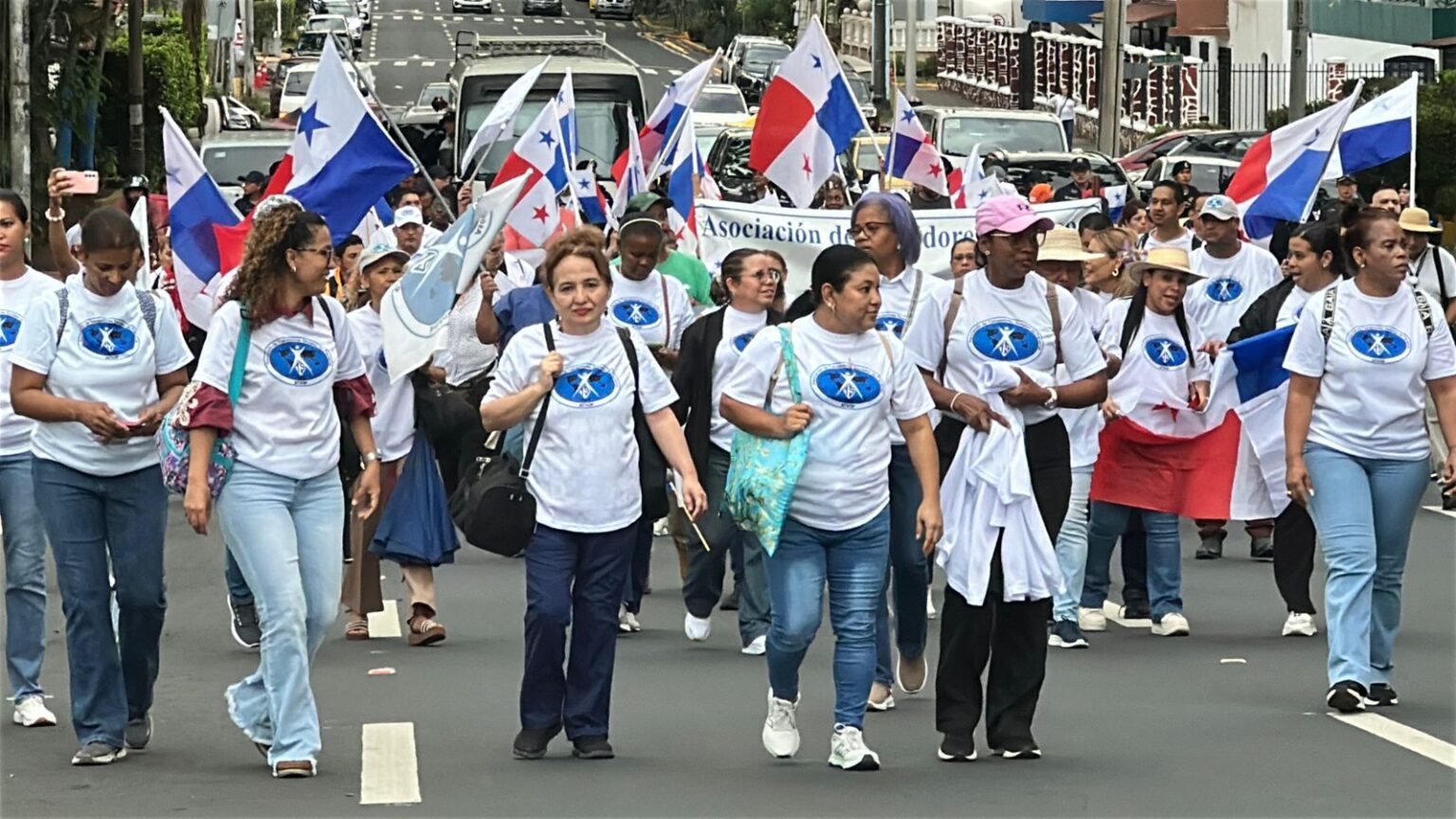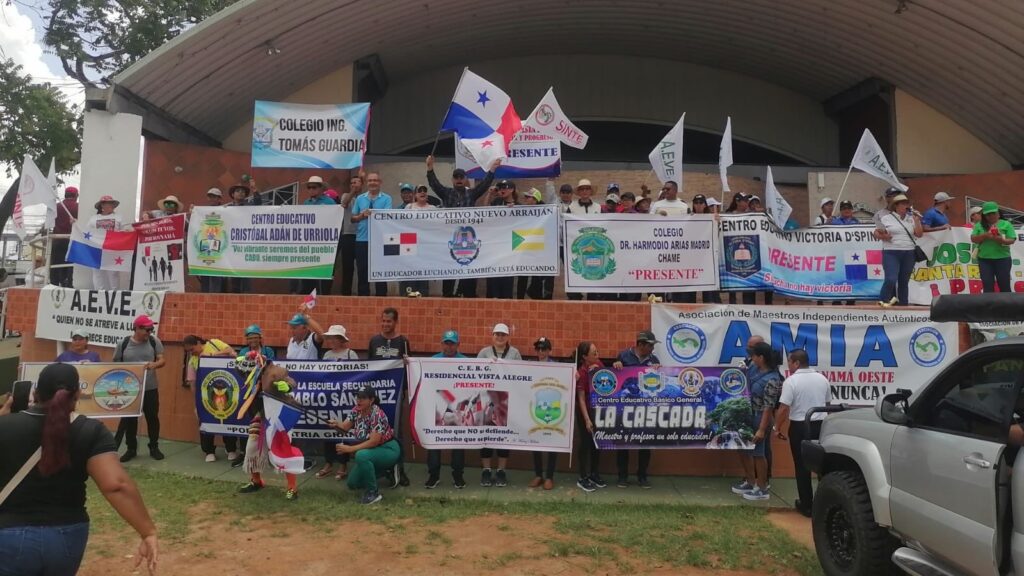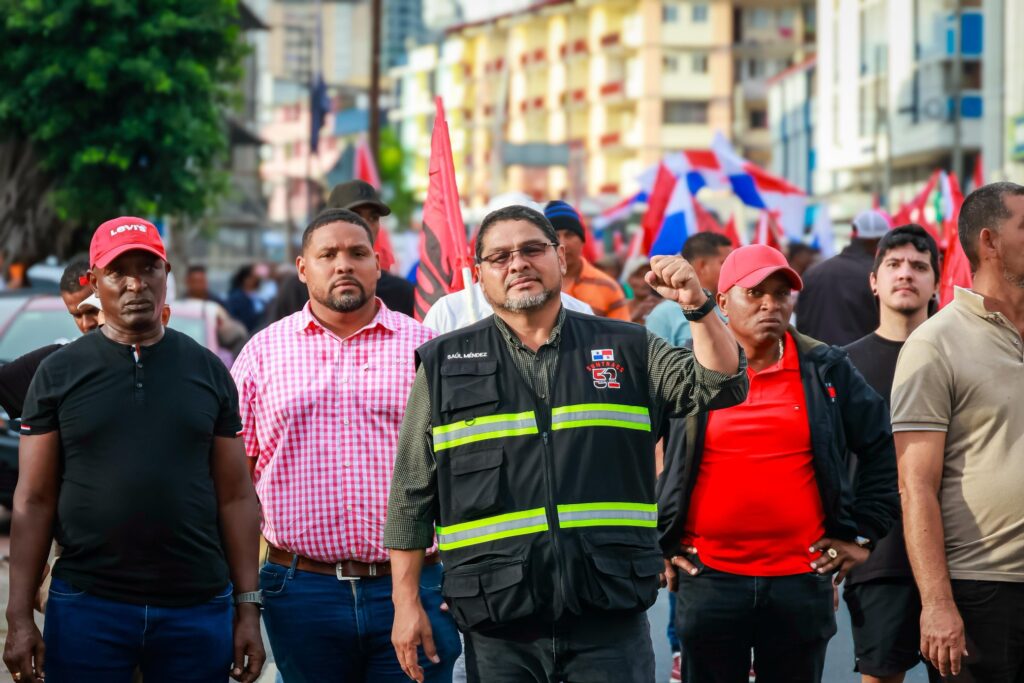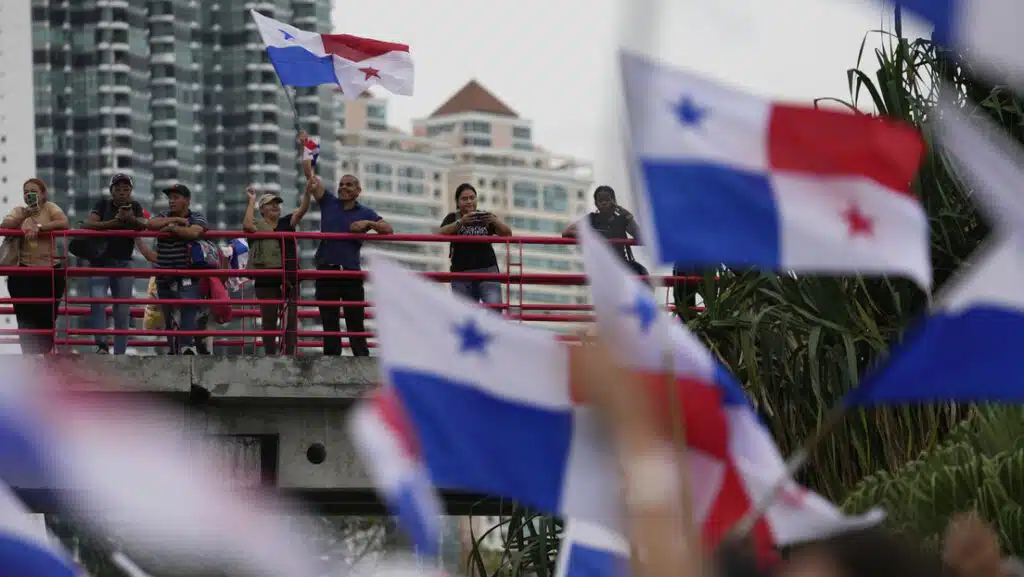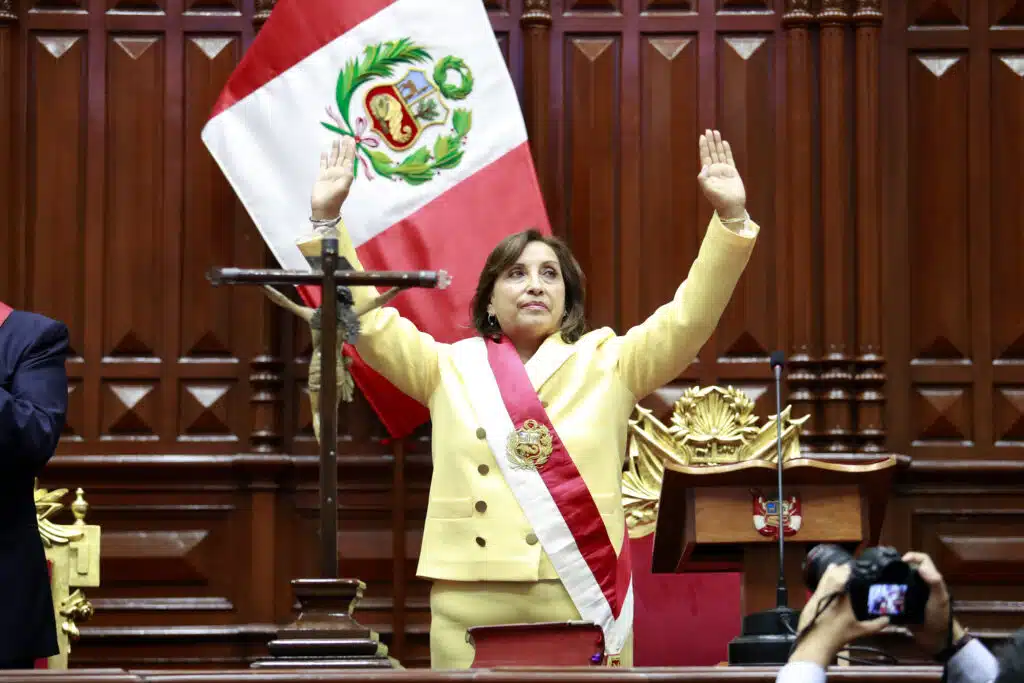
Presidential candidate Luisa Gonzalez, April 13, 2025. X/ @SputnikMundo
April 14, 2025 Hour: 9:04 am
The organization provided details about the irregularities that harmed presidential candidate Luisa Gonzalez.
On Sunday the results of the second round of the presidential elections in Ecuador surprised millions of citizens. Despite having led the polls for weeks, Citizen Revolution candidate Luisa Gonzalez obtained fewer votes than she had obtained in the first round.
Hours after the voting concluded, the National Electoral Council (CNE) announced President Daniel Noboa as the winner of the presidential elections.
In response to the events, Gonzalez rejected the results presented by the CNE, denounced electoral fraud, and demanded a full and exhaustive recount of the votes. On Monday, the Citizen Revolution Movement endorsed its candidate and issued the following statement:
“Presidential candidate Luisa Gonzalez, along with millions of Ecuadorians, categorically reject the official results announced this Sunday due to conclusive evidence of systematic electoral fraud. We demand that the free press, embassies, and the international community act urgently in response to this serious violation of Ecuadorian democracy.
#Ecuador has not had free & fair election for several years since US-backed rightwingers took over in 2017; but Noboa & the crooked CNE has clearly resorted outright fraud in the vote count yesterday. I’ve been saying, many have been saying, it was possible
Thread https://t.co/f1HonWWaHp
— Joe Emersberger (@rosendo_joe) April 14, 2025
We call for an immediate and independent investigation into the following documented irregularities:
1. Inexplicable and selective vote reduction: Thousands of votes for Luisa Gonzalez unjustifiably disappeared during the vote count, while Daniel Noboa registered statistically impossible increases in numerous polling stations.
2. Manipulation of official records: Dozens of official tally sheets lacking signatures or legal validity certified exclusively favorable results for Daniel Noboa, violating basic electoral transparency standards.
3. Illegal restrictions to prevent visual documentation of fraud: The use of cell phones in polling stations was unlawfully prohibited under threat of fines up to $30,000, with the express purpose of preventing voters from graphically documenting who they actually voted for.
4. Premature statements by the CNE to influence public perception: The president of the National Electoral Council released preliminary results favoring Noboa before the data was officially consolidated, manipulating public perception.
5. Suspicious interruptions and technical failures at key polling sites: Unexpected power outages at strategic locations, unjustified early closures of polling stations, and repeated technical failures in electronic transmission facilitated serious alterations in the vote count.
6. Military intimidation and obstruction of electoral observers: An excessive military presence deliberately hindered the work of independent observers and pollsters, severely limiting transparency in the electoral process.
7. Official results contradict scientific and statistical evidence: The published results contradict at least a dozen independent polls and internationally recognized statistical models, including those close to former President Guillermo Lasso. RC5 possesses conclusive scientific evidence demonstrating the mathematical impossibility of the official results.
8. Arbitrary last-minute changes in polling locations: Thousands of voters identified with RC5 were affected by sudden and unjustified changes in their designated polling places, resulting in an artificial and statistically impossible drop in turnout among our supporters.
Faced with this unprecedented threat to Ecuadorian democracy, we reaffirm our absolute commitment to electoral transparency and to the unwavering defense of the will of the people.”
https://www.telesurenglish.net/citizen- ... n-ecuador/
Luisa González Rejects Ecuador Election Results, Demands Recount

Luisa González, presidential candidate for the Citizens' Revolution Apr 13, 2025 Photo: EFE
April 13, 2025 Hour: 9:56 pm
Luisa González of the Citizens’ Revolution rejects Ecuador’s election results, alleging fraud and calling for a recount. Tensions rise as she demands transparency in the electoral process.
In a strong statement following the second round of elections in Ecuador, Luisa González, presidential candidate for the political movement Citizens’ Revolution, expressed her rejection of the results announced by the National Electoral Council (CNE). González alleged that fraud occurred in the vote tally, accusing current president Daniel Noboa of benefiting from an irregular electoral process.
“Before my people, facing them as I always do and as is right for good women,” González stated, emphasizing that her movement has accepted defeats in the past when polls indicated so. However, this time she declared: “Today we do not recognize the results.”
— Elena Rodríguez Yánez (@ElenaDeQuito) April 14, 2025
The candidate called on “the men, women, and young children I represent,” urging a review of the electoral process. “I refuse to believe there is a people who prefer lies over the truth. We will demand a recount and that the ballots be opened,” she concluded.
She insisted that they will request a recount. “We are going to defend our right to democracy. Ecuador cannot continue to be governed by a person incapable of leading it toward peace and development, someone who only prioritizes their business and the well-being of their family,” he said.
“Now more than ever, we must be vigilant about what the person who calls themselves the President of the Republic is doing. I publicly denounce that they are committing fraud. We continue in the fight,” he concluded.
Previously, González denounced that the president did not request unpaid leave from the National Assembly and used state resources to campaign, in addition to not entrusting the presidency to the elected vice president, Verónica Abad, as mandated by the Constitution.
The day before, the Parliament and the legislative bench of the Citizens’ Revolution accused Noboa of violating fundamental guarantees by declaring a state of emergency without just cause and imposing it in provinces where the vote did not favor him.
A few hours earlier, Noboa decreed the closure of borders to prevent international observers from entering the country, which would contribute to the transparency of the runoff election. In no case did the electoral authority—the CNE—speak out against these and other irregularities.
In addition, this Sunday, after the polls closed, the former presidential candidate of the Citizens’ Revolution, Andrés Arauz, denounced that the CNE (National Electoral Council) is uploading vote records without signatures, a requirement established in Article 127 of the Democracy Code to validate the results.
Arauz published images of six electoral records lacking the joint signatures of the president and secretary of the Voting Reception Boards (JRV). According to his complaint, all these unsupported records favor the current president, Daniel Noboa.
https://www.telesurenglish.net/luisa-go ... s-recount/
******
Video: Bombshell Investigation Exposes Ecuadorian President’s Cartel Conspiracy
April 12, 2025

File Image. Photo: Grayzone.
An investigative report has placed Ecuadorian President Daniel Noboa at the center of a vast conspiracy to transform his government into a laundromat for transnational drug cartels.
The Grayzone spoke to Andres Duran, the journalist who broke the bombshell story, and who had to go into exile to save his own life.
[youtube] http://youtu.be/FfaWCYSA30w[/youtube]
Ecuador teeters on the edge of a narco abyss, awash in violence, and with its dollarized economy and strategic ports transformed into a cocaine highway through Guayaquil to Europe and beyond.
President Daniel Noboa, heir to a banana empire exporting $3.5 billion yearly, presides over a nation where austerity has gutted state power, leaving a void which cartels eagerly fill. Guayaquil, handling 70% of exports, is a sieve.
Over 600 kilos of cocaine linked to Noboa Trading S.A. were seized between 2020 and 2024, bound for Croatia and Italy, yet no one has been held accountable. This isn’t chaos; it’s a system, one where narco cash—billions in U.S. dollars—props up a fragile state too broke to print its own money.
To understand Ecuador’s crisis, we must first grasp the following: you can only buy drugs using cash.
Consequently, that cash is drained from the economic system into the underworld. It’s like trying to keep a bowl full when it has a hole; you need to find a way to plug it back into the system. Our economic and social systems depend on it, because to replace it, printing money would cause inflation and dilute the current supply at an alarming rate.
So the system needs that money back.
The parallels to Wachovia’s 2008 banking scandal are stark, because shutting the bank down risked economic collapse after “dark cash” ceased to flow back and caused a shortage. Ecuador’s austerity, imposed since dollarization in 2000, mirrors this: after years of deep cuts, powerless police and control agencies show a state crippled, not careless and an economic and political empire, also, “too big to fail”.
In his “war on gangs,” President Noboa has carefully avoided the Sinaloa, CJNG, and Balkan cartels. Is it possible he cut some kind of backroom deal to keep drugs and cash moving while he crushes dissent?
The 2023 assassination of the anti-corruption crusader and presidential candidate Fernando Villavicencio by the cartel known as Los Lobos, clearly demonstrated the price of defying the cartels. Ecuador is now ruled by a narco-political order where cash trumps justice, and austerity ensures the state will not fight back.
Cartels exploit decades of cuts, making Ecuador a laundering hub, its dollarized veins pumping narco wealth into a global system that desperately needs it.
Andrés Durán, an Ecuadorian reporter exiled after exposing Noboa’s links, uncovered a state complicit in its own undoing.

OSCAR LEON: “Andrés, thanks for joining us.”
ANDRES DURAN: “Thank you, Oscar, thank you to The grayzone. I’m here to share what I’ve uncovered.”
OSCAR LEON: “Thank you, Andres. During the presidential debate, Luisa González grilled Daniel Noboa about his family’s company trafficking cocaine—not once, but multiple times.”
——————
LUISA GONZALES: …My question is clear—are you or are you not the owner of Noboa Trading, the company that exported cocaine-laced bananas in 2020, 2022, and 2024—while you were already president? Five prosecutors have been replaced, and still no answers.”
PRESIDENT DANIEL NOBOA: “No.”
DEBATE HOST: “Candidate Noboa, you have one minute to explain your answer.”
PRESIDENT DANIEL NOBOA: “No, I’m not the owner—but members of my family are.”
————-
OSCAR LEON: “He denies ownership, yet he said it’s his family’s. Can you unpack the importance of that?”
ANDRES DURAN: “Absolutely. My investigation—conducted with journalists across Latin America—uncovered a scandal the Ecuadorian media tried to bury. Noboa Trading, linked to President Noboa through Inmobiliaria Zeus S.A. (Ecuador) and Lanfranco Holding S.A. (Panamá), was caught red-handed trafficking cocaine: 167 kilos in 2020, 400 kilos in 2022, and 78 kilos in 2024, all en route to Italy and Croatia.
This isn’t speculative intelligence like Lasso’s León de Troya—it’s a blatant crime. And Noboa himself admitted on live TV that the company belongs to his family—a confession with explosive political, legal, and reputational consequences.”
Before the president’s slip-up during the debate, these were only suspected shell companies.
The company controls farms, trucks, and port access. On March 29, Raya magazine confirmed Durán’s findings: several police documents directly implicated Noboa Trading, making this the first case to directly link an Ecuadorian president to drug trafficking—further fueling suspicions of a cartel-state alliance.
On April 3rd, Agência Pública (Brazil) reported that Noboa and his brother own 51% of Lanfranco Holdings, which in turn owns Noboa Trading and hundreds of other companies—an apparent attempt to conceal the president’s influence, business interests, and tax responsibilities. Noboa, notably, owes $89 million in taxes and fees to the very state he governs.
This report confirms Durán’s long-standing investigations into the matter.
ANDRES DURAN: “We need to add more disturbing facts and connect the dots. First, under the current president, only $5,677 was allocated to the National Police’s Ports and Airports Intelligence Unit—just over $5,000! This is the budget given to one of the most critical units fighting organized crime in the country’s ports.
Second, regarding the 2022 case: at the time, Daniel Noboa was an assembly member representing Santa Elena province. He asked his top advisor to act as the legal representative for the only defendant in all three Noboa Trading cases—Mr. José Luis R. That advisor is now the current Minister of Health, Mr. Edgar José Lama Von Buchwald.”
Durán points out that just a month after the arrest, the case was closed when State Attorney Julio Sánchez, who has been linked to the Los Choneros gang, refused to press charges against José Luis R., whose sole job is to be the legal representative responsible for the company, during container inspections. Consequently, José Luis R. was legally deemed not responsible for the “drug contamination.” Yet despite this, the case was closed, and no investigation was launched to identify the actual perpetrators.
ANDRES DURAN: “So while Noboa publicly claims, ‘It’s not my company, I have nothing to do with it… but my relatives are involved,’ we must ask: if it’s not his company, why did he assign his top advisor to defend the sole suspect in the case?
At the time, Lama Von Buchwald was Noboa’s closest advisor, and yet he became the legal representative for the only defendant in the Noboa Trading cocaine trafficking cases—despite being a public official, which legally disqualified him from serving as a defense attorney.
These are just some of the irregularities. And to all that, let’s add another name: Ms. María Beatriz Moreno Heredia—accused of illicit trafficking of controlled substances. What exactly was her role?”
María Beatriz Moreno, national president of ADN, has been charged, along with four others, with the alleged crime of illicit trafficking of controlled substances since August 2024, when she was arrested in connection with the seizure of 1.3 tons of cocaine. Moreno, who was released the same night, also serves as manager of other companies in the Noboa group, such as Nobexport S.A and even Vinazín S.A, and Agroindustrias San Esteban C.A., which have been recently involved in corruption scandals.
————————————-
LUISA GONZÁLEZ: “Dear Ecuadorians, go on social media right now and look into Noboa Trading—drugs have been exported in banana boxes from the Noboa company, owned by Mr. Daniel Noboa, to Croatia and Italy. Drugs! So, the one making deals with you… or the mafias is you, Mr. Noboa.
Let’s talk about money laundering—according to that same leaked chat, drug money is being laundered in banks today, something I will fight. And let’s not forget: your family owns banks too.
Now let me ask: who is financing political parties and campaigns with drug money? You are. María Moreno, linked to drug trafficking, is president of your party and manages nine companies within the Noboa Group. Stop lying to the Ecuadorian people.”
DEBATE HOST: “Time for candidate Noboa’s second interpellation. You have 30 seconds.”
PRESIDENT DANIEL NOBOA: “Luisa, you’re a lawyer—you should know that if a company alerts the National Police about contamination, it means it’s cooperating, not complicit, as you claim. Meanwhile, your friends are still walking free. Do you recognize Maduro’s dictatorship, Luisa?”
DEBATE HOST: “Candidate González: You have one minute to respond.”
LUISA GONZÁLEZ: “Once again: Noboa Trading—an Ecuadorian company owned by Mr. Noboa—was caught exporting drugs in banana boxes in 2020, 2022, and 2024. Five prosecutors have been replaced. To this day, the case remains unresolved.
The real pact with mafias is yours. And you still haven’t answered: why is the president of your political party involved in a drug trafficking case? The Prosecutor’s Office removed her name from the system, and only after public outcry did they restore the data.
So again: who’s funding political campaigns with drug money?
———————————-
A few days after the debate, María Moreno was acquitted.
ANDRES DURAN: “There’s also the case of the manager of Transmabo, who has been charged twice with cocaine trafficking. So, are these just coincidences? Absolutely not. These are not coincidences—because Noboa has had the power to tighten control over the banana inspection system, UniBanano, and he hasn’t.
In fact, his Minister of Agriculture has been complicit in the so-called ‘drug contamination’ that several banana-exporting companies in Ecuador face on a daily basis.”
OSCAR LEON: “Noboa’s defenders would say someone else contaminated his containers, not him. What’s your response to that?”
ANDRES DURAN: “That excuse doesn’t hold. These containers have refrigeration recorders that track temperature 24/7 from Guayaquil to Europe—any opening is logged. Yet in none of these cases was the data checked. Trucks are equipped with GPS, but no stop records were reviewed. Noboa Trading owns the entire chain—farms, transport, and Blasti S.A.’s container yards. Hiding 400 kilos requires at least 15 people working in coordination—it’s not the work of a lone saboteur. No forensic investigation was conducted. The omission screams complicity.”
A single individual—legally declared incapacitated—was charged in all three cases, which remain unresolved. What’s alarming is that those responsible for contaminating the shipments have not been investigated or arrested. As Durán points out, this type of concealed contamination requires heavy industrial machinery and a full-scale metalworking operation—something impossible to hide. We’re not talking about a jute sack tucked away somewhere.
ANDRES DURAN: “To do that kind of thing, you need at least 15 people, at least 15 people. That is, 15 people gained access to the yard, the truck, or the container depot belonging to the company, Blasti Sociedad Anónima Property of the President of the Republic and his family, to carry out the contamination. 15 people who weren’t identified by security, 15 people who entered the house like Peter in his own house.”
Durán points out that amid a falling commodity market, the contrast in returns for investors is stark: per icontainers a container with 29 tons of bananas is worth between $12000 and $18000, while a single container carrying a ton of cocaine is worth around 37 million, according to (Europol/UNODC).
Given that only 10% of containers are searched, the numbers seem to speak for themselves—especially in a system built on impunity.
On January 24 in Madrid, President Daniel Noboa hosted a lavish party at a Japanese restaurant—a night of excess during which he was reportedly seen throwing money in the air and calling for a celebration.
Spain’s Ministry of the Interior later filed a formal complaint over the use of official vehicles during the event. The Ecuadorian government denied the report as ‘false.’
However, Spain’s El Debate revealed that the $15,000 in cash used to pay for the party came from León Van Parys, a fruit importer working with Noboa Trading, who allegedly labeled the payment as ‘an advance’ after covering expenses for Noboa’s assistant. Van Parys, is a European banana partner of the Noboa Group.
Despite portraying himself as a conservative family man, Noboa is known for a rather liberal private life. During the presidential debate, he was even challenged to take an anti-doping test. Instead of addressing the request, he ignored it and quickly changed the subject.
———————————-
LUISA GONZALES: “I invite you, let’s call, let’s have someone give us a drug test when we leave here. And to everyone, clearly, we want to educate our young people”.
Between 2005 and 2010, U.S. federal agents investigated Wachovia for laundering $378.4 billion for drug cartels. The bank was fined just $160 million—a mere fraction of the money moved.
The Noboa Trading case follows a similar playbook: lax oversight, massive laundering, and a symbolic penalty that keeps the system intact.
Ecuador’s dollarized economy, weakened by years of austerity, may rely on this illicit cash flow even more than Wachovia once did. Government estimates place cartel money circulating in the country between $3 TO $5 BILLION ANNUALLY, though the true figures remain unverifiable.
Against this backdrop, Noboa’s $5,677 budget for the Port Intelligence Police is laughable. And yet, the pipeline remains wide open—just as Wachovia’s slap on the wrist preserved its liquidity.
Ecuador now resembles a bank “too geopolitically big to fail,” recycling narco-dollars into a state that can’t print its own currency—ultimately feeding the global financial system.
———————————-
OSCAR LEON: “We’ve seen ties between the government, the Balkan Mafia, and the Mexican Cartels under Lasso. Does that continue with Noboa?”
ANDRES DURAN: “No. What’s happening in Ecuador is a shift—a transfer of power from the financial mafia to the exporting mafia. That’s the reality.
If you examine the León de Troya report closely, you’ll find even more—like the unresolved case of Banco de Guayaquil, former President Guillermo Lasso’s bank, which facilitated money transfers for the Albanian mafia.
I have capital integration certificates linked to several individuals connected to the Albanian mafia, some of whom also have ties to Banco Litoral, owned by the Noboa family. These connections paint a grim picture of the Ecuadorian state. We must continue digging to expose those involved in organized crime—whether through banking or the Banana Control System.
And who orchestrated the deregulation and dismantling of that system? Bernardo Manzano. While serving as Guillermo Lasso’s Minister of Agriculture, he also held a senior role in the Noboa Group, where he worked for nearly 18 years.
These facts speak volumes about the current administration. In the end, they turned me—a journalist—into an exile.”
Noboa’s rise is closely linked to the assassination of presidential candidate Fernando Villavicencio. Although the blame initially fell on Correísta candidate Luisa González, authorities knew from the outset that the Los Lobos gang was responsible. Leaked chats from Attorney General Diana Salazar, revealed in August 2024, confirmed this. The damage to González’s campaign cleared the way for Noboa to present himself as a safer, alternative candidate.
The circumstances of the murder point to state complicity. Villavicencio’s armored vehicle arrived late to the designated back exit, yet he was inexplicably directed through the crowded front entrance with only two guards. Additional agents assigned after previous threats did nothing. Frame-by-frame footage shows a gunshot fired near his own escorts. He was also alone in the car—violating established security protocols.
The lead gunman later died in police custody, raising suspicions of a cover-up. Just hours afterward, police raided three locations and arrested six Colombians carrying weapons and phones allegedly linked to opposition politicians. Was this a swift law enforcement response—or a carefully staged operation?
Los Lobos, affiliated with Mexico’s CJNG and Balkan cartels, claimed responsibility for the murder. By October 2023, the rest of the hitmen had been silenced in prison. Daniel Noboa, who was sworn in on November 23, 2023, now controls Ecuador’s banana exports, military, police, and port infrastructure, all critical to cocaine shipments to Europe, yet trafficking has not been curbed, not even at his own companies.
Villavicencio’s plans to militarize ports and build a supermax prison directly threatened these routes. Even Mexican President Andrés Manuel López Obrador hinted at state involvement.
On January 7th 2024, Los Choneros leader “Fito” escaped from prison. Just 2 days later, Los Lobos staged a violent takeover of TC Televisión in January 2024. The incident gave Noboa justification to declare a “war on gangs,” though curiously, this campaign excluded cartels and money-laundering networks.
Noboa’s selective crackdown on street gangs—while his family’s banana empire is repeatedly tied to cocaine shipments—suggests either deep complicity or profound helplessness within a cartel-state structure inherited from the Lasso administration.
Former President Guillermo Lasso’s brother-in-law, Danilo Carrera, collaborated with Rubén Cherres, a figure linked to the Albanian narco-network. Cherres operated with impunity until his assassination in 2023. The León de Troya report exposed wide-ranging connections to drug trafficking, influence peddling, and high-level corruption—prompting three separate investigations.
Despite U.S. lawmakers urging President Biden to respond to Ecuador’s growing cartel ties, no meaningful action followed. Years of austerity created a power vacuum now occupied by organized crime. Under Noboa’s leadership, the state appears either unwilling—or unable—to regain control.
OSCAR LEON: “You faced threats and exile. What happened?”
ANDRES DURAN: “It began in October 2023, at the Esmeraldas Provincial Authority when I investigated property irregularities involving the Prefect. This woman had several inconsistencies in her assets. After posting about them at least three times, I received threats.
As a result, I was placed in the Victim and Witness Protection System—until four days before the first election round, when they expelled me without explanation. They claimed I violated protocol, which only involved sporadic home visits to check if I was alive.
In 2024, after exposing that Dritan Gjika’s companies were still operating and laundering money through mining, I received another threat—a call from the Albanian mafia. Yet, the State and the protection system did nothing. Instead, legal harassment against me continued.”
Dritan Gjika, an Albanian national, arrived in Guayaquil in 2009 and, over 13 years, frequently traveled across Europe and Latin America. He built a network of 71 companies in Ecuador, spanning construction, agriculture, and real estate—allegedly to facilitate drug trafficking and money laundering.
By December 2022, Gjika fled to Dubai and remains a fugitive with an active Interpol red notice. Investigators found that his companies, many of which should be closed, are still operating as fronts for illicit activities, extending his influence across Ecuador’s economy.\
ANDRES DURAN: “I got a lawsuit from alleged operators of a very dangerous criminal gang called Los Choneros. These brothers from the province of Los Ríos, whom I hadn’t even mentioned—the plaintiff wasn’t even part of my investigation. Later we learned that the inmate who sued me was, at the time, the romantic partner of Diana Salazar, the Attorney General of the Nation.”
Attorney General Diana Salazar stands at the center of several growing scandals. Her reputation came under fire after leaked chats—first reported in The Grayzone’s August 2024 exposé—suggested she acts as a pawn of the U.S. Embassy and Ecuador’s right-wing elite.
The messages allegedly show her coordinating with U.S. agents to shield allies of Presidents Guillermo Lasso and Daniel Noboa, while aggressively targeting opposition figures.
Critics claim that Salazar’s selective justice, backed by chats that suggest US pressure, guarantees impunity for the right, consolidating a political order where Noboa thrives and leftist dissent is crushed.
OSCAR LEON: “It seems that in Ecuador, drug trafficking and money laundering sustain both society and the global banking system, while the so-called war on gangs targets low-level operatives, disposable foot soldiers easily replaced, while ignoring the cartels and money laundering structures.”
ANDRES DURÁN: “When President Guillermo Lasso took office, he was already compromised. The National Police had been monitoring active members of the Albanian mafia, including one of his campaign financiers, Rubén Lleras. Lleras’ ties to Rubén Cherres—and through him, to Albanian mafia leader Dritan Gjika—show that these criminal networks extend far beyond politics. We’re not just talking about narco-politicians; these are businessmen, especially in the financial sector. The mafia even had direct links to one of Ecuador’s major banks.
Another major issue is the collapse of the country’s security policy. U.S. Ambassador Michael Fitzpatrick publicly stated that Ecuador has ‘narco-generals, narco-judges, and narco-prosecutors,’ yet no investigations followed. I was the first journalist to file a criminal complaint against four National Police generals for covering up the ‘León de Troya’ report, which exposed Lasso’s ties to the Albanian mafia. Nothing was done.
Meanwhile, the government accelerated deregulation in the banana industry—a known conduit for drug trafficking. Executive decrees enabled fraudulent export quotas, including the infamous ‘F code’ used to smuggle cocaine in banana shipments. Criminal organizations infiltrated security forces, as revealed in the Metástasis case, where two police officers involved in money laundering remain on active duty.
Ecuador’s dollarized economy makes it an ideal hub for laundering illicit funds, yet the lack of financial oversight continues to fuel corruption and violence. This isn’t mere negligence—it points to systemic complicity.”
While he was able to escape, Durán’s fate somehow threatened to mirror Villavicencio’s. Endanger the cash machine, and you’re gone.
The machine never stops. Since 2018, Ecuador has become a key node in the global cocaine trade. At least 17 reported seizures of drug-laced fruit containers—mostly bananas—have occurred across destinations like Russia, Spain, Italy, Germany, Turkey, and the U.S., totaling over 38 tons where quantities are disclosed (Reuters, BBC, Nexta TV, EL PAÍS English, Revista RAYA).
These busts reveal how Ecuador’s banana exports have been systematically used to smuggle cocaine. Highlights include 257 kilos seized in Russia in 2018, 3 tons in Ecuador headed to Russia in 2023, 6.2 tons in Posorja in 2024, and a record-breaking 13 tons intercepted in Spain that same year. Most likely, these reports only scratch the surface. Smaller domestic seizures and interceptions in transit hubs like Panama often go unreported.
And while Luisa González mentioned only 3 cases, out of the 17 documented cases, at least five are directly linked to the Noboa Group—through Noboa Trading S.A. or affiliates like Bonita Banana.
Five Noboa Group-Linked Cases Since 2018 with Links
2020 – 167 kg to Italy (Noboa Trading S.A.)
Details: 167 kg of cocaine was seized in banana containers shipped by Noboa Trading S.A., intercepted at an Italian port (likely Gioia Tauro or Livorno). Part of Andrés Durán’s 600+ kg total for Noboa since 2020.
June 30, 2022 – 260 kg at Naportec, Guayaquil (Noboa Trading S.A.)
Details: 260 kg of cocaine was found in Noboa Trading banana containers at Naportec port, Guayaquil, tied to José Luis Rivera Baquerizo’s arrest (later released). Pre-export, intended for Europe.
2022 – 400 kg to Croatia (Noboa Trading S.A.)
Details: 400 kg of cocaine was seized in Noboa Trading banana shipments at a Croatian port (likely Rijeka), within Durán’s 600+ kg tally.
2024 – 600 kg to Mersin, Turkey (Banana Bonita)
Details: 600 kg of cocaine was seized at Mersin port in banana boxes branded “Banana Bonita,” a Noboa Group entity under Fruit Shippers Ltd., by Turkish customs.
March 23, 2025 – 324 kg to Italy (Noboa Trading S.A.)
Details: 324 kg of cocaine was seized in Ecuador, destined for Italy in Noboa Trading banana boxes, confirmed by police docs and ADN40. X posts (@radiolacalle) support this.
Sources: Revista RAYA, “Empresa de familia de Daniel Noboa, presidente de Ecuador, involucrada en tráfico de cocaína a Europa,” March 25, 2025.
Link: https://revistaraya.com/empresa-de-fami ... -a-europa/
These account for 1,751 kilos of cocaine seized between 2020 and 2025, as confirmed by ADN40, Revista RAYA & Andrés Durán.
The remaining 12 busts involve other exporters or unnamed firms. The data suggests that Noboa, whether by action or omission, is deeply involved, but not alone, in Ecuador’s narco-export network.
To understand the scale, consider this: Guayaquil—handling 70% of Ecuador’s exports—moved around 325,000 banana containers in 2023 alone (AP News, September 3, 2023).
Between 2018 and 2023, that likely totals 2 to 2.5 million containers. Yet fewer than 40 containers have been caught with cocaine. That’s less than 0.002%—virtually nothing.
Even factoring in possible unreported seizures—some estimates suggest 80 tons in 2024 alone, or roughly 4,000 containers—the interception rate might rise to 1 in 500. Still, the odds overwhelmingly favor traffickers. The scale of Guayaquil’s shipping volume offers cover, allowing narco-exports to flow with near impunity.
Ecuador’s ports are a hub for world cocaine trafficking, while its dolarized, deregulated system is a laundering paradise, feeding a global need for narco cash. A well-oiled system, unpunished, essential, and deadly.
(The Grayzone) by Oscar León
https://orinocotribune.com/video-bombsh ... onspiracy/
Ecuador: Presidential Candidate Luisa González Criticizes President Noboa for Abruptly Changing Her Security Personnel
April 12, 2025
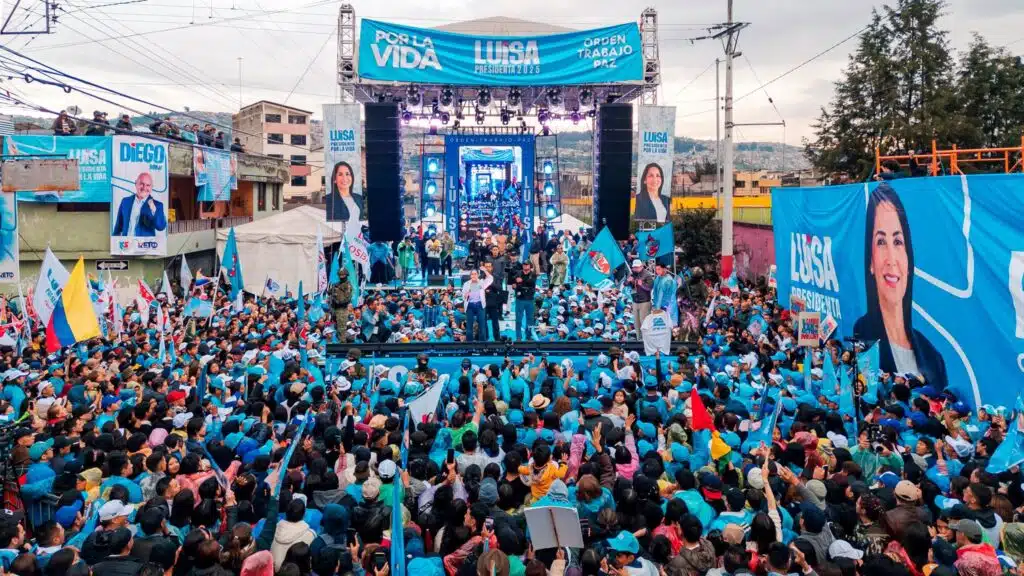
The closing event of presidential candidate Luisa González's electoral campaign in Quito, Ecuador, April 10, 2025. Photo: X/@LuisaGonzalezEc.
The leftist candidate in the presidential elections of Ecuador, Luisa González, condemned the abrupt change of her security team and held President Daniel Noboa and the state authorities responsible if something happens to her or her family.
“Today, I have been informed by the Armed Forces personnel in charge of my security that they have been abruptly relieved of their duties,” she said in a video posted on social media on Friday, April 11. She pointed out that the security team had been assigned to protect her due to the threats against her life.
DENUNCIA PÚBLICA AL PAÍS!
Alerto al país sobre el irresponsable acto del Gobierno al relevar a mi equipo de seguridad de las Fuerzas Armadas, poniendo en riesgo mi vida y la de mi familia.
¡No detendrán el cambio que se avecina para nuestro país!
Ustedes tienen el miedo,… pic.twitter.com/ThL0i5BAaa
— Luisa González (@LuisaGonzalezEc) April 11, 2025
She demanded that the team originally assigned as her security be maintained until the results of the elections are declared, highlighting that changing it at this moment increases the risk for her life and her family.
González criticized this “irresponsible, reckless, and profoundly dangerous decision.” According to her, the change was deliberately made by President Daniel Noboa, Minister of Defense Gian Carlo Lofredo, and the head of the joint command of the Armed Forces of Ecuador, General Jaime Vela Erazo.
https://orinocotribune.com/ecuador-pres ... personnel/
